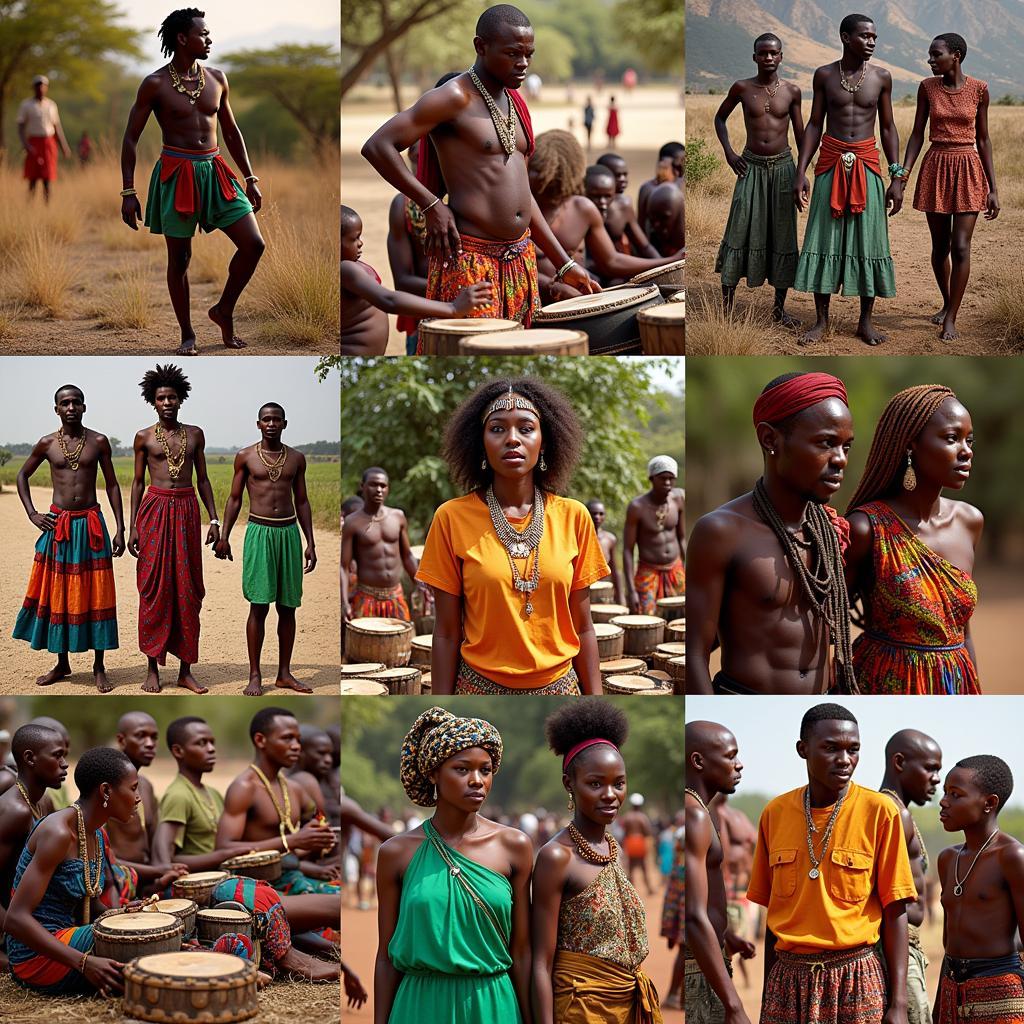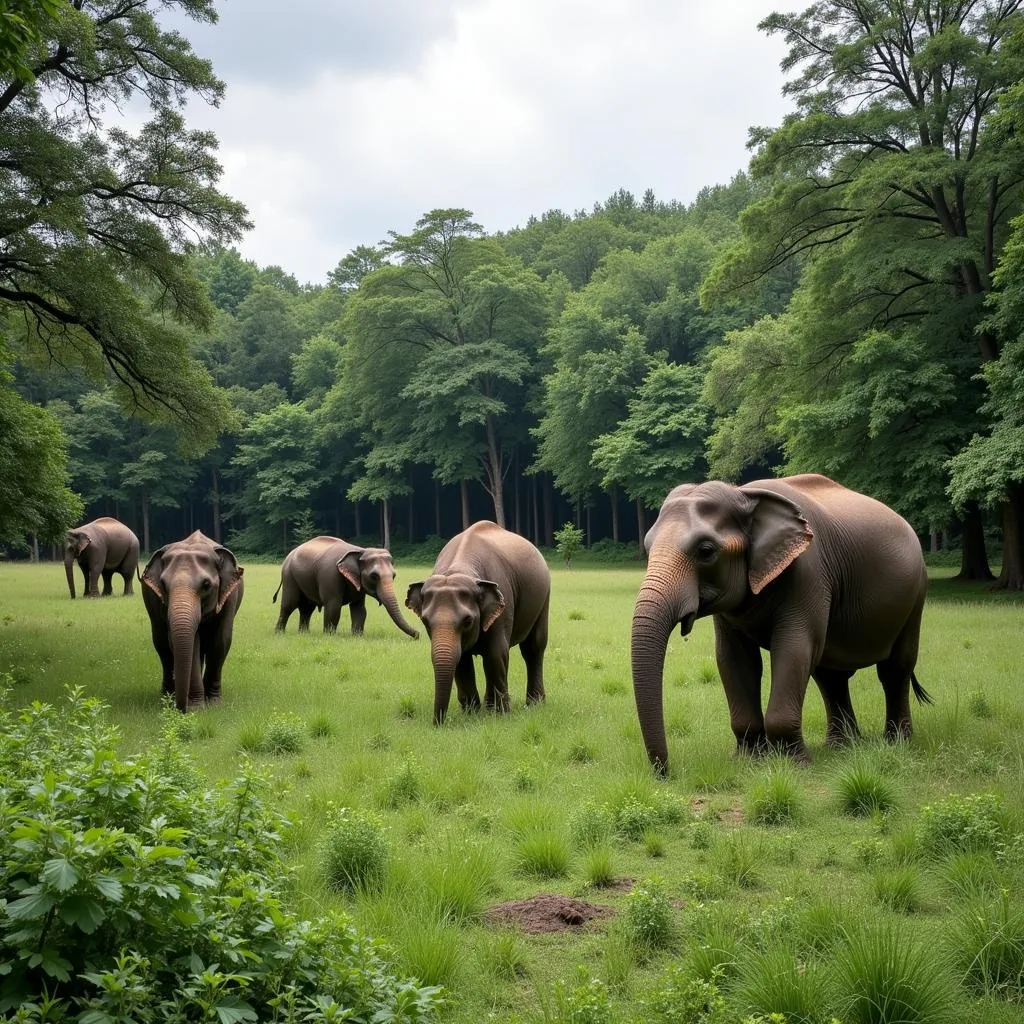Understanding African Defence
African Defence is a complex and multifaceted issue encompassing various aspects, from military spending and peacekeeping operations to regional security alliances and the fight against terrorism. Understanding these diverse elements is crucial to grasping the challenges and opportunities facing the continent. This article delves into the core components of African defence, exploring its historical context, current state, and future prospects.
The African continent has a long and complex history of conflict and cooperation, shaping the current defence landscape. Colonial legacies, Cold War rivalries, and internal power struggles have all played a role in defining the security challenges facing African nations. From the liberation struggles of the mid-20th century to the contemporary fight against extremist groups, the need for effective defence mechanisms has been a constant. This has led to the development of various strategies, alliances, and institutions focused on promoting peace and stability across the continent. For instance, the establishment of the African Union’s Peace and Security Council highlights the commitment to addressing security concerns collectively. Furthermore, many countries have invested heavily in building their military capabilities, often with support from international partners. However, the effectiveness of these investments and the overall state of African defence remains a topic of ongoing debate.
Exploring African Defence Strategies
African defence strategies have evolved significantly over the years, moving from a primarily reactive approach to a more proactive and integrated one. This shift reflects a growing recognition of the interconnectedness of security challenges, such as terrorism, transnational crime, and climate change. Regional organizations like the Economic Community of West African States (ECOWAS) and the Southern African Development Community (SADC) have played a crucial role in developing joint security mechanisms and promoting regional cooperation.
The Role of Peacekeeping in African Defence
Peacekeeping operations are a vital component of African defence. The African Union and various regional bodies have deployed numerous peacekeeping missions across the continent, often in collaboration with the United Nations. These missions aim to stabilize conflict zones, protect civilians, and facilitate the transition to peace. However, they also face significant challenges, including funding shortages, logistical constraints, and complex political dynamics. The African Standby Force, a multinational peacekeeping force, aims to address some of these challenges by providing a readily deployable force for rapid response to crises.
African defence and security policy provides valuable insights into the complexities of security on the continent.
The Future of African Defence: Challenges and Opportunities
The future of African defence is marked by both challenges and opportunities. Rapid population growth, climate change, and increasing competition for resources pose significant threats to stability. Furthermore, the proliferation of small arms and light weapons continues to fuel conflict in many regions. However, there are also opportunities for progress. Increased investment in education, healthcare, and economic development can contribute to long-term stability by addressing the root causes of conflict. Furthermore, strengthening regional cooperation and building stronger partnerships with international actors can enhance Africa’s capacity to respond to security challenges effectively.
How is Technology Impacting African Defence?
Technology is playing an increasingly important role in African defence. From surveillance drones and satellite imagery to sophisticated communication systems, technological advancements are transforming how security operations are conducted. However, access to and utilization of these technologies varies significantly across the continent, creating a digital divide that needs to be addressed.
African girls pib opppsiye defence enclave offers a specific perspective on defence initiatives in certain regions.
Conclusion
African defence is a dynamic and evolving field, shaped by a complex interplay of historical, political, and economic factors. Understanding the multifaceted nature of this issue is crucial for anyone seeking to comprehend the challenges and opportunities facing the continent. As Africa continues to grapple with security threats, investing in robust and adaptable defence mechanisms will be essential for ensuring peace, stability, and sustainable development. The future of African defence depends on a comprehensive approach that integrates military capabilities with diplomatic efforts, economic development, and social progress. This requires strong leadership, effective regional cooperation, and a continued commitment to addressing the root causes of conflict.
African countries by military spending provides data and analysis on defence expenditure across the continent.
Expert Insights:
Dr. Abimbola Adebayo, Security Analyst: “African defence must move beyond traditional military approaches and embrace a more holistic strategy that addresses the underlying socio-economic drivers of conflict.”
General Emeka Ojukwu (Ret.), Former Chief of Defence Staff: “Regional cooperation and information sharing are crucial for effectively combating transnational threats like terrorism and organized crime.”
FAQ:
- What are the main challenges facing African defence?
- How is technology changing the landscape of African defence?
- What role do regional organizations play in African defence?
- What are some of the key strategies being employed to enhance African defence?
- What is the African Standby Force and what is its purpose?
- How does military spending in Africa compare to other regions?
- What are the future prospects for African defence?
Need more information on African Dust Symptoms? African dust symptoms
For further reading, explore our articles on African defence conclave 2019.
When you need assistance, please contact us at Phone Number: +255768904061, Email: [email protected] or visit us at Mbarali DC Mawindi, Kangaga, Tanzania. We have a 24/7 customer service team.

